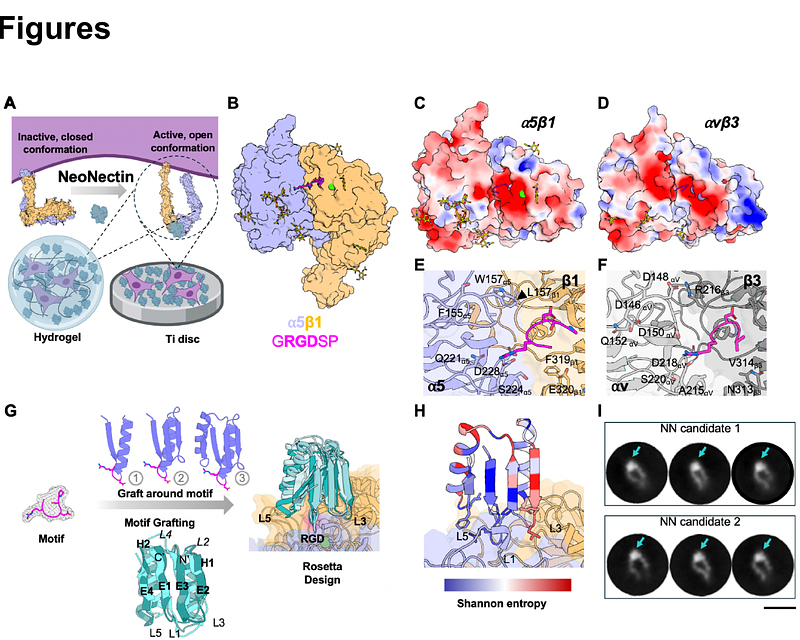De Novo Design of Integrin α5β1 Modulating Proteins for Regenerative Medicine

De Novo Design of Integrin α5β1 Modulating Proteins for Regenerative Medicine
Wang, X.; Guillem-Marti, J.; Kumar, S.; Lee, D.; Werther, R.; Alamo, K. A. E.; Zhao, Y.-T.; Nguyen, A.; Kopyeva, I.; Huang, B.; Li, J.; Hao, Y.; Li, X.; Cabrerizo-Aguado, D.; Brizuela-Velasco, A.; Murray, A. N.; Gerben, S.; Roy, A.; DeForest, C. A.; Springer, T.; Ruohola-Baker, H.; Cooper, J.; Campbell, M. G.; Manero, J. M.; Ginebra, M.-P.; Baker, D.
AbstractIntegrin 5{beta}1 is crucial for cell attachment and migration in development and tissue regeneration, and 5{beta}1 binding proteins could have considerable utility in regenerative medicine and next-generation therapeutics. We use computational protein design to create de novo 5{beta}1-specific modulating miniprotein binders, called NeoNectins, that bind to and stabilize the open state of 5{beta}1. When immobilized onto titanium surfaces and throughout 3D hydrogels, the NeoNectins outperform native fibronectin and RGD peptide in enhancing cell attachment and spreading, and NeoNectin-coated titanium implants outperformed fibronectin and RGD-coated implants in animal models in promoting tissue integration and bone growth. NeoNectins should be broadly applicable for tissue engineering and biomedicine.


